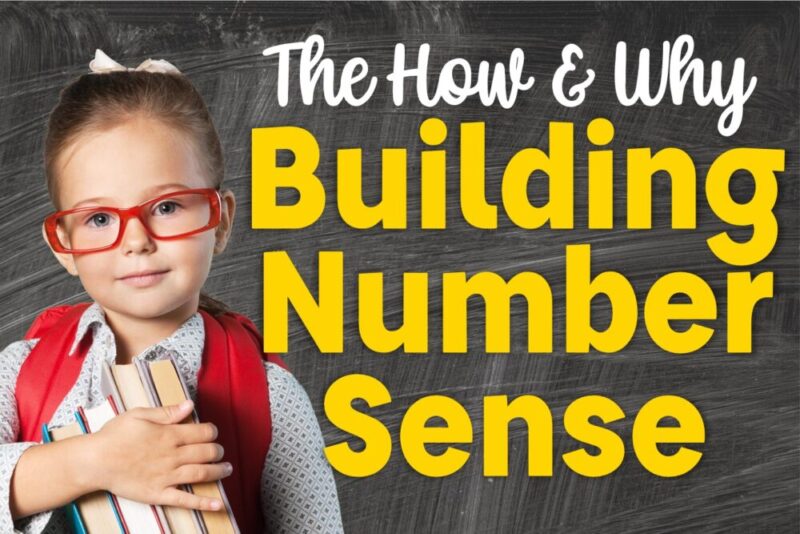Understanding Number Sense:
Every child’s journey into mathematics begins long before they encounter textbooks or equations. Number sense development is the foundation that helps children understand what numbers mean, how they relate to each other, and how they can be used in everyday life. When children develop strong number sense, they gain confidence in solving problems, estimating quantities, and applying logical thinking — all essential early math skills.
At Nool and Numbers, we believe that nurturing number sense from an early age is one of the most important steps in helping children enjoy and excel in math. But what exactly is number sense, and how can parents and teachers help build it?
What Is Number Sense?
Number sense is the intuitive understanding of numbers — the ability to recognize, compare, and manipulate them without relying solely on memorization. It includes:
- Recognizing numbers and their order
- Understanding quantity (more, less, equal)
- Estimating and comparing amounts
- Seeing patterns and relationships between numbers
- Applying numbers in real-world situations
Children with strong number sense don’t just memorize facts; they understand how numbers work. This deep understanding lays the groundwork for all future math learning.
Why Number Sense Matters in Early Learning
Strong number sense helps children:
- Approach problems with flexibility rather than fear.
- Develop reasoning and analytical skills.
- Understand advanced mathematical concepts more easily later.
- Build confidence in math learning for kids from a young age.
Without this foundation, children may struggle as math becomes more complex. Early exposure to numeracy skills for children helps prevent learning gaps that can persist through school years.
Signs Your Child Is Developing Good Number Sense
You can tell your child’s number sense is growing when they:
- Can identify numbers and match them to quantities.
- Understand simple comparisons like “bigger than” or “smaller than.”
- Use counting naturally while playing or talking.
- Recognize patterns in shapes, colors, or numbers.
- Try to solve simple problems creatively, even if their answers aren’t perfect.
How to Build Number Sense in Early Learners
Here are practical and enjoyable ways to strengthen early math skills at home or in the classroom:
1. Make Counting a Daily Habit
Counting doesn’t have to feel like a chore. Encourage your child to count everyday objects — fruits, toys, stairs, or even steps while walking.
For example: “Let’s count how many apples we have!”
Counting aloud helps children connect numbers with real quantities and lays the groundwork for arithmetic.
🟢 Tip: Use number songs and rhymes to make counting fun and memorable. Children learn best through rhythm and repetition.
2. Play With Numbers Through Games
Learning through play is one of the best early learners math activities. Games like dominoes, dice, or number cards introduce children to comparing and recognizing numbers naturally.
🟢 Try this: Create a simple “Number Hunt” — hide number cards around the house and have your child find and order them. This enhances number recognition and sequencing skills.
3. Use Everyday Situations as Learning Moments
Numbers are everywhere — in clocks, calendars, money, and recipes. Use daily routines to talk about numbers:
- “It’s 7 o’clock — time for bed.”
- “We need 3 cups of flour for the cake.”
- “You have 5 candies; if you eat one, how many are left?”
These real-life examples strengthen number sense development by showing children that numbers are part of their world.
4. Introduce Patterns and Sequences
Recognizing patterns is a crucial part of mathematical thinking. Encourage your child to find or create patterns with blocks, beads, or even food items (like alternating apple and banana slices).
🟢 Activity idea: “Make a color pattern — red, blue, red, blue. What comes next?”
This enhances logical reasoning and prepares them for more advanced math later on.
5. Focus on Understanding, Not Memorization
Many parents rush to teach addition and subtraction facts early, but true numeracy skills for children come from understanding why math works, not just what the answers are.
🟢 Example: Instead of saying “2 + 3 = 5,” help them visualize it with toys or blocks. Ask, “If you have two cars and I give you three more, how many cars do you have now?”
This builds conceptual understanding — the heart of number sense.
6. Use Visual Aids and Manipulatives
Visual tools like number lines, charts, and counters help children see relationships between numbers. Manipulatives such as cubes, beads, or buttons give them hands-on ways to explore mathematical ideas.
🟢 Tip: Try using transparent counters or colorful beads — visual stimulation helps early learners retain concepts longer.
7. Read Math-Related Storybooks
Storybooks are a wonderful way to make math relatable. Books like Ten Black Dots, Chicka Chicka 1, 2, 3, or How Many Seeds in a Pumpkin? introduce math ideas in a playful, engaging manner.
When you read together, ask guiding questions like, “How many apples are on the tree now?” or “Which group has more?” This encourages active thinking and strengthens comprehension.
8. Encourage Estimation and Logical Thinking
Estimation helps children think about numbers flexibly. Ask open-ended questions such as:
- “How many blocks do you think will fit in this box?”
- “Do you think there are more spoons or forks on the table?”
These promote curiosity and number reasoning — key aspects of early math skills.
9. Praise Effort, Not Just Accuracy
Developing number sense takes time, and mistakes are part of learning. Encourage your child to explain their thought process. This builds metacognition — thinking about their own thinking — and makes them better problem solvers.
🟢 Say this instead of correcting immediately: “That’s an interesting way to think about it! Let’s try another way together.”
10. Create a Math-Friendly Environment
Surround your child with opportunities to engage with numbers. Decorate their study space with number posters, math puzzles, and colorful visuals.
The more they see and interact with numbers, the more natural math will feel.
Number Sense and Long-Term Success
Research consistently shows that early numeracy predicts later academic success — even more than early reading ability in some studies. Children with strong number sense development tend to:
- Excel in higher math and problem-solving.
- Develop stronger logical and reasoning skills.
- Approach challenges with confidence and curiosity.
By investing time in math learning for kids early, parents and teachers set the stage for lifelong comfort with numbers — turning anxiety into enthusiasm.
Final Thoughts:
Building strong number sense isn’t about drilling equations or memorizing facts — it’s about fostering curiosity, exploration, and understanding. When children learn to see numbers as part of their world, they develop confidence that extends beyond math into all areas of life.
At Nool and Numbers, we believe every child can develop a positive relationship with numbers. With the right support, encouragement, and early learners math activities, children can discover the joy of learning — one number at a time.


Leave a Reply to A WordPress Commenter Cancel reply